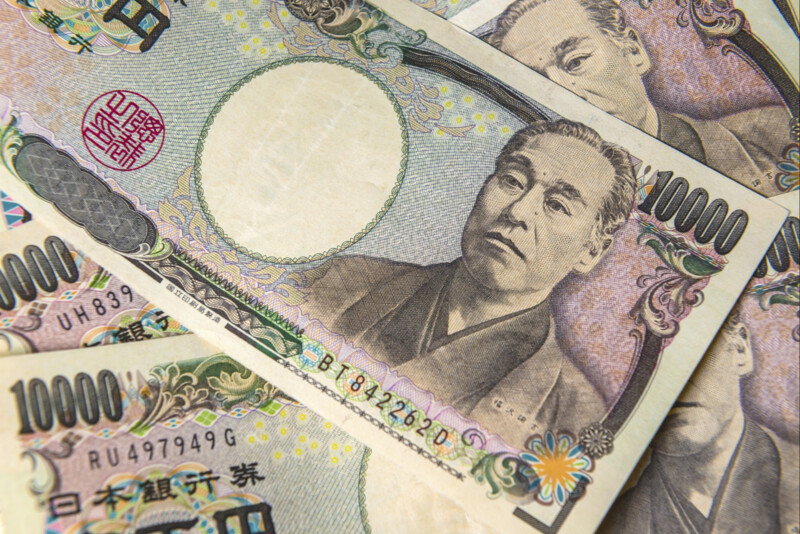L’important décalage entre la politique monétaire de la Banque du Japon et celle de la Réserve fédérale américaine entraîne une forte dépréciation du yen, qui a atteint son plus bas niveau face au dollar depuis octobre 1998.
Un décalage entre la politique monétaire de la Banque du Japon et celle de la Fed
En déclin depuis le mois de mars, la monnaie japonaise évolue depuis la mi-avril à ses plus bas niveaux en deux décennies face au dollar. Lundi 13 juin, le dollar s’est hissé jusqu'à 135,19 yens, un record qui n’avait pas été atteint depuis 1998.
Cette forte dépréciation de la monnaie japonaise est liée à un décalage important entre la politique monétaire menée par la Banque du Japon (BoJ) et celle de la Réserve fédérale américaine (Fed).
En effet, alors que la politique monétaire de la Banque du Japon reste très accommodante et ne prévoit pas de hausse des taux directeurs, la Fed a déjà commencé à relever ses taux pour tenter de contrer l’inflation.
Aux États-Unis, l’inflation progresse très rapidement, avec une hausse des prix à la consommation au mois de mai de 8,6 % sur un an, contre 8,3 % au mois d’avril. L’inflation est accentuée par la hausse des prix du pétrole observée depuis le début de la guerre en Ukraine, hausse qui contribue à augmenter le déficit commercial du Japon et à faire chuter le cours du yen.
The Yen tumbled to its lowest against the dollar in 24 years on Monday, as the gap between Japanese and us benchmark yields widened after red hot us inflation data drove us treasury yields higher. pic.twitter.com/MVhT2e7r0U
— ANews (@anews) June 13, 2022
Les ménages japonais craignent une accélération de l’inflation
La Banque du Japon, de même que le gouvernement et les grandes entreprises du pays, considèrent habituellement que la faiblesse du yen comporte des avantages, à commencer par une plus grande compétitivité des exportations japonaises et une augmentation des bénéfices générés par les entreprises nipponnes à l’étranger.
Toutefois, le gouverneur de la Banque du Japon a récemment reconnu qu’une chute brutale du yen avait un impact négatif sur l’économie nationale, tandis que le ministre des Finances Shunichi Suzuki a mentionné « des côtés positifs et négatifs au yen bon marché ».
Pour les ménages nippons, dont le pouvoir d’achat est fragilisé par la chute du yen et le renchérissement des importations, notamment des biens de première nécessité, il devient difficile d’entendre le gouvernement vanter les mérites de la dépréciation de la monnaie japonaise.
La Banque du Japon, le gendarme financier japonais (FSA) et le ministère des Finances ont publié un communiqué commun en fin de semaine dernière, annonçant que des « mesures appropriées » seraient prises « si nécessaire » pour contrer la chute du yen. Un resserrement monétaire de la part de la Banque du Japon semble toutefois improbable à ce stade.
L’inflation demeure beaucoup moins importante au Japon qu’en Europe ou aux États-Unis. Elle a atteint les 2,1 % au mois d’avril sur un an, ce qui représente tout de même un niveau record pour le Japon depuis 2015.
